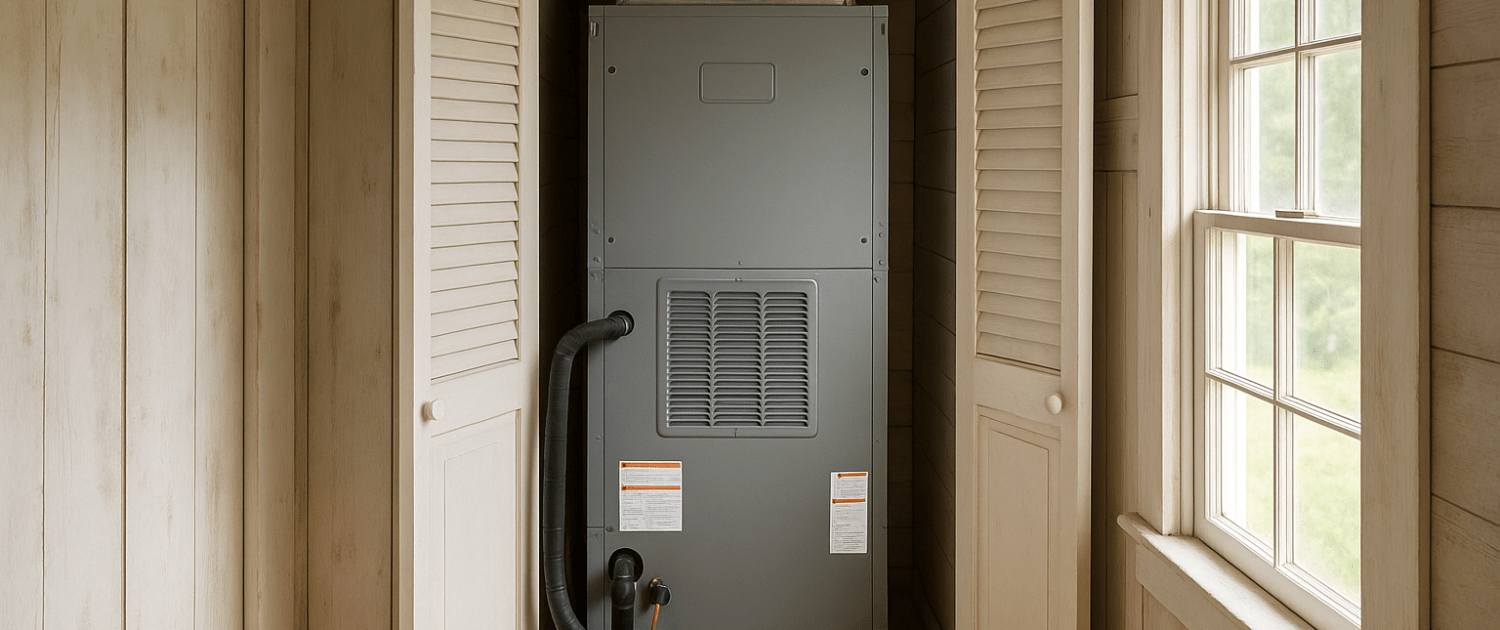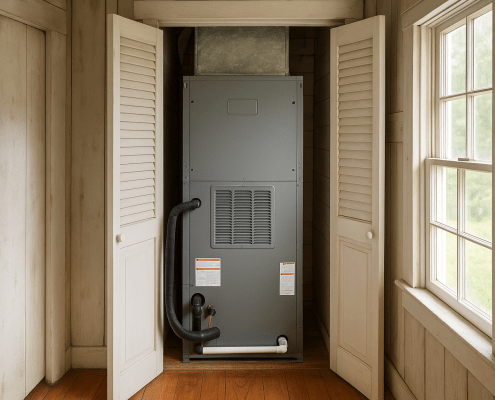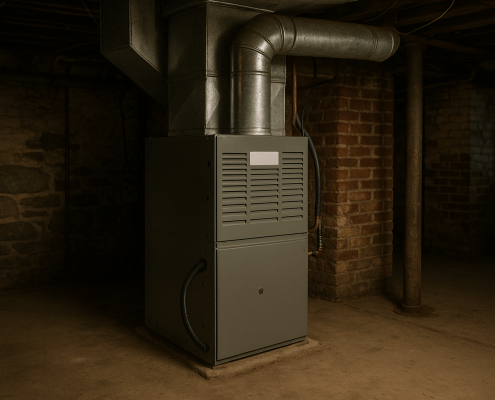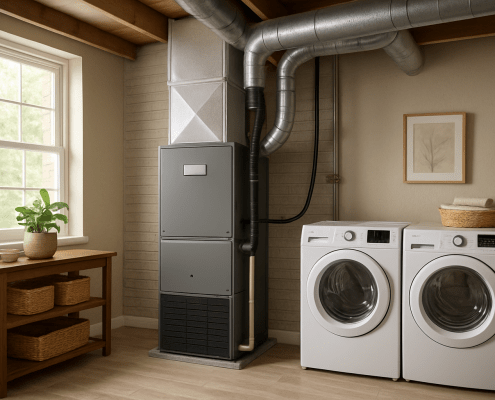Burning Smell from AC? Here’s What It Means and What to Do
Steven E / Monday June 30, 2025
When your central air conditioning kicks on during a hot afternoon, the last thing you expect is the sharp scent of something burning wafting from the vents. It’s unsettling, and for good reason. A burning smell coming from your AC system is a signal that something’s not quite right, and in some cases, it could point to a serious issue.
But before you panic or assume the worst, take a breath. Not all burning smells are dangerous, and many are fixable with a bit of inspection and elbow grease. This guide will walk you through the common causes behind a burning smell in your central AC, and more importantly, how to troubleshoot and fix it yourself safely and effectively.
The information in this article may not apply to your specific appliance model. We recommend consulting your manufacturer’s documentation or contact us with any questions.
Is It Safe to Continue Running the AC?
If you smell burning the moment your AC turns on, turn it off immediately. You don’t want to take any chances when it comes to electrical shorts or overheating parts. Once the system is shut down, allow it to cool before beginning any repairs.
Not all burning smells mean fire or severe danger, but many start with an electrical issue, worn-out parts, or dust buildup. The key is to work through each cause methodically and take action where necessary.
Common Causes of a Burning Smell from a Central AC
Let’s take a closer look at the typical sources of burning odors in a central AC system, starting with the more common and less dangerous, then moving to more serious issues.
Dust Burn-Off
If you’re turning your AC on for the first time in the season or after a long period of disuse, a mild burning smell might just be dust burning off internal components, particularly the electric heat strips in systems that include auxiliary heating. This is a common and usually harmless issue, especially in systems that double as heat pumps.
What it smells like: A faint, dry burning odor that disappears after a few minutes of running.
- Shut off the unit.
- Remove access panels on the air handler.
- Use a vacuum with a brush attachment to gently clean dust off the heating elements and other exposed surfaces (avoid touching wires or circuit boards).
- Replace or clean the air filter.
- Run the system again and see if the smell clears up.
Clogged or Dirty Air Filter
A clogged air filter reduces airflow and can cause components like the blower motor to overheat. This sometimes results in a burning rubber or hot metal smell, particularly near the vents.
- Locate your air filter, typically found in the return vent or at the air handler.
- Check the filter for excessive dust and debris.
- If it looks dirty or hasn’t been changed in the last 1–3 months, replace it with a new filter of the correct size and MERV rating.
- Restart the system and monitor for smells.
Overheating Blower Motor
Your AC’s blower motor is responsible for circulating cool air through the ductwork. If the motor overheats, often due to age, poor lubrication, or airflow restrictions, it can produce a smell similar to burning plastic or rubber.
What to check:
- Turn off the system and remove the air handler access panel.
- Look for discoloration, excessive heat, or a burnt smell around the blower assembly.
- Check the blower wheel for dirt buildup or obstruction.
- Spin the motor shaft by hand to see if it moves freely.
- Clean the blower wheel and housing.
- Lubricate the motor bearings (if your motor allows it, many modern ones are sealed).
- Ensure proper airflow by checking vents and ductwork for blockages.
If the blower motor is seized or emitting a strong burning smell, it may need replacement.
Burning Smell from the Outdoor Condenser Unit
Sometimes, the smell may be coming from the outside condenser unit, particularly if leaves, grass, or other debris have made their way inside and are resting against the compressor or fan motor.
- Turn off power to the outdoor unit.
- Remove the top grille and panels.
- Use a vacuum or soft brush to remove debris from the interior.
- Check the fan motor for signs of overheating (discoloration or melted wires).
- Inspect the capacitor and contactor for swelling or damage.
Once everything is clean and checked, reassemble the unit and turn the power back on. If the burning smell persists when the condenser runs, the fan motor or compressor could be failing.
Melted or Worn Fan Belt (in Older Systems)
Some older AC systems use belt-driven blower motors. A worn-out or misaligned fan belt can create a rubber-burning smell when it slips or breaks.
- Open the air handler and inspect the belt for cracks or fraying.
- Check the belt tension, if it’s too loose or too tight, adjust accordingly.
- Replace the belt if it shows signs of damage or wear.
Most newer systems use direct-drive motors, but if you have an older model, this is worth checking.
Where To Find Us
If you need any replacement parts for your appliances, you can enter your model number at AppliancePartsPros.com to locate and order them quickly. Most orders arrive in just two business days, and we have tons of great information in our repair help section and YouTube videos to help you troubleshoot.
Stay connected with the latest DIY tips, tutorial videos, and repair guides by following us on Facebook, Instagram, and Twitter. We love hearing about your repair stories and successes. If you need more help or want personalized guidance, feel free to reach out. We’re ready to help you take on your next project with confidence!
With nearly a decade of experience in providing top-notch customer service regarding appliance parts and repair, Steven enjoys sharing practical advice, troubleshooting tips, and interesting information to help readers stay informed.





